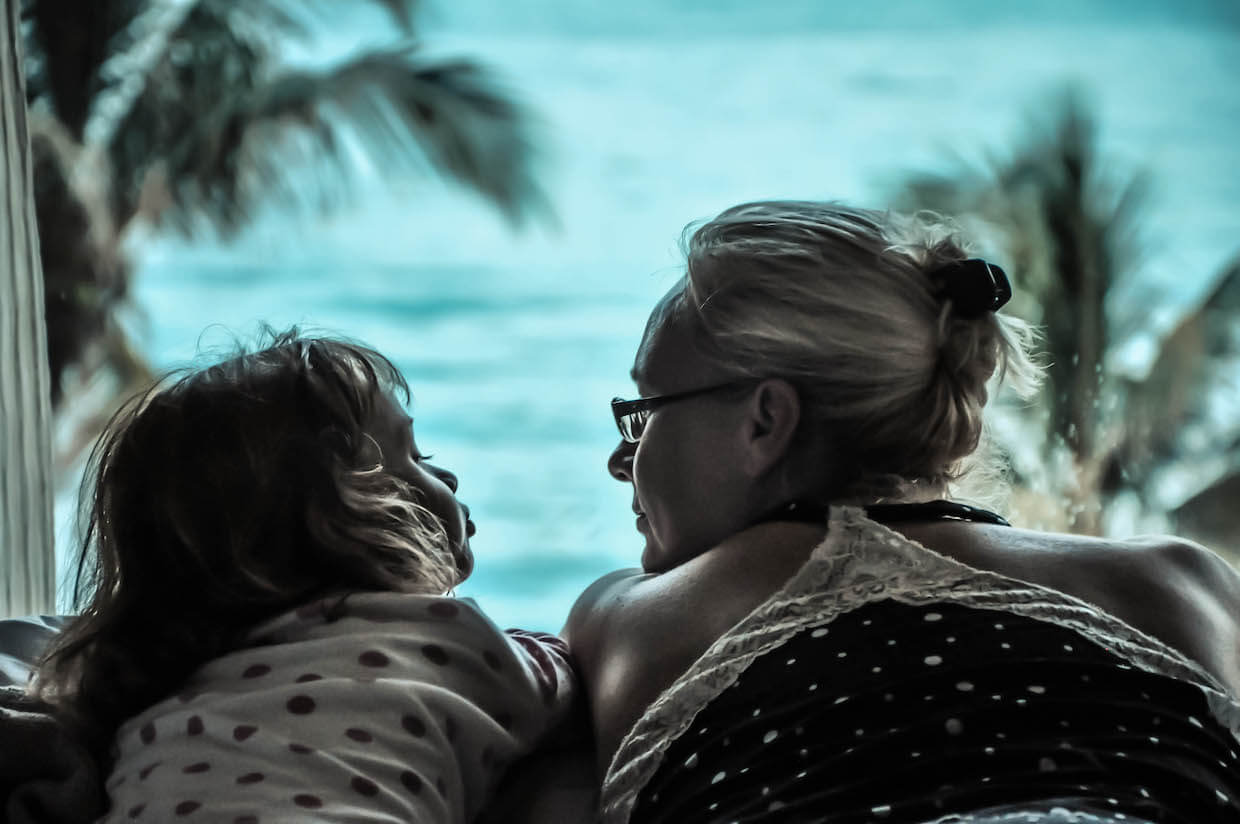When the Department of Children’s and Family Services (DCF) has reason to belief that your child or children have been neglected, abused, or abandoned as defined under Chapter 39 of the Florida Statutes, DCF can a petition with the court, requesting that your child become a dependent of the court.
While child abuse and child neglect are crimes punishable by the Florida Penal Code, dependency litigation is actually governed under Florida civil law, Chapter 39 of the Florida Statutes. That being said, if there is evidence for the State to bring criminal charges, you may find yourself in both courts, civil and criminal. Examples are: Florida Couple Left Their Toddler at the Park for Hours, Charged With Child Neglect and Burned, cut, beaten: Palm Springs adults accused of abusing 6-year-old),
How is child abuse investigated?
Here’s how a case comes to be. First, someone calls the child abuse hotline and makes a report (1-800-962-2873). Fla. Stat. §39.201. All calls to the hotline are received by specially trained people in Tallahassee who then filter the calls. Id. Cases which do not meet the criteria for sheltering a child are screened out. Id. Case which do are then forwarded to the appropriate local agency to investigate. Id. Many of the local agencies operate out of the county sheriff’s office, Id., but this is not necessarily the case. Based on the urgency of the case, it will be given one of two different response times: immediate or 24 hours. Id.
The case will be assigned to a Child Protective Investigator (CPI) who will ideally see the case through from inception to closure. Fla. Stat. §39.301. A CPI has 60 days to complete an investigation. Id. This may include interviewing the children, parents, family members, polices officers, neighbors, doctors, nurses, teachers, and anyone else who may have information on the suspected abuse. Id. CPIs will also do walk-throughs of a family’s home, Id., and take the children for medical examinations if necessary, Fla. Stat. §39.303.
What happens at the end of a child abuse investigation?
Most often, a CPI will not need even close to all 60 days to make a determination if there are grounds to shelter a child. Most often, the abuse is immediately apparent. Frequently encountered scenarios include substance-exposed newborns, sexual abuse, physical abuse resulting in injury, unexplained injuries, failure to thrive, unattended children, hazardous living conditions, severe neglect, and exposure to domestic violence. See Fla. Stat. §39.01. In such types of cases, children will be immediately removed from the parents’ custody and placed in someone else’s custody, or “sheltered.” Fla. Stat. §39.01. In addition to agents of the Department, police officers also have the authority to take children into custody if they have probable cause to support grounds for shelter. Fla. Stat. §39.401.
Where the abuse is not immediately apparent, or where the parents cooperate with DCF and the children are not in immediate danger, a CPI may instead implement a “Safety Plan.” Fla. Stat. §39.301. It is a voluntary agreement with the parents to abide by certain terms that will ensure the safety of the children until a determination is made, or during which time the parents will engage in voluntary services offered by the CPI that will resolve the causes for concern. Id.
Sometimes a case stops here. If it turns out the report was false, or simply does not meet the criteria for child abuse, the investigation is closed. If the parents complete the voluntary services and have alleviated the cause of concern, the case is closed. The parents never go to court.
Where the parents do go to court, there is still a very lengthy process. The public policy of the state is to achieve permanency for children as quickly as possible because of how studies have shown that instability and frequent change impacts their development. Fla. Stat. §39.001; Fla. Stat. §39.0136. That is why the state is required to act very quickly once a child abuse report is made. Once a child has been sheltered, the state must file a shelter petition and be before a court within 24 hours in order to keep the child in its custody. Fla. Stat. §39.401; Fla. Stat. §39.402. The CPI is required to notify the parents of where and when court is. Fla. Stat. §39.402.
Filing False Allegations of Child Abuse
If it turns out the report was false, the investigation is closed. It is a crime to report false allegations of child abuse.
If the Court finds Probable Cause to proceed with the Dependency Case – it is an expense and lengthy process
The public policy of the state is to achieve permanency for children as quickly as possible because studies have shown that instability and frequent change of homes can negatively impact a child’s development. Fla. Stat. §39.001; Fla. Stat. §39.0136. That is why the state is required to act very quickly once child abuse is reported. If the state removes a child from your home, the state must file a shelter petition and be before a court within 24 hours in order to keep the child in its custody. Fla. Stat. §39.401; Fla. Stat. §39.402. The CPI is required to notify the parents of where and when the hearing is as they have a constitutional right to appear in court and defend against the allegations alleged against them. Fla. Stat. §39.402.
Where do my children go if they are taken from me?
Once taken by DCF, children do not automatically go to foster homes. DCF is required to place children with the other parent (if only one parent committed abuse). E.B. ex rel. A.B. v. Dep’t of Children & Families, 969 So. 2d 505, 507 (Fla. 1st DCA 2007). If placement with the other parent is not an option, DCF tries to place the children with family members or close family friends. Fla. Stat. §39.4015; Fla. Stat. §39.402. If there is no other only, only then do the children go to foster care.
What happens at a shelter hearing?
At the shelter hearing, the judge will make a determination of whether there is probable cause to shelter the child. Fla. Stat. §39.402. DCF must also show that it made reasonable efforts to prevent or eliminate the need for removal of the child from the home, or that first contact with the family occurred during an emergency.
Probable cause is a very low standard and is usually found in these types of cases.
Contrary to the Florida Rules of Evidence, Hearsay is permissible.
The CPI will be present to testify if necessary, but the judge will usually just read the shelter petition and make a determination thereafter. DCF is required to provide the court copies of any available law enforcement, medical, or other professional reports, and shall also provide copies of abuse hotline reports pursuant to state and federal confidentiality requirements. Fla. Stat. §39.402.
If the children are sheltered, the case is not over. If a judge finds probable cause, he will sign a shelter order, a custody order, and an order releasing medical and educational information. Fla. Stat. §39.402. The judge will also determine what type of visitation is appropriate for the parents, if they are allowed visitation at all. Fla. Stat. §39.402. If the child does not have a legal father, DCF will do a paternity inquiry with the parents. Fla. Stat. §39.402. Finally, the court will issue the next important court dates, Fla. Stat. §39.402, which usually includes the mediation, arraignment, and first judicial review. A parent will be given the opportunity to challenge probable cause and present their own evidence to challenge DCF’s investigation at trial. Fla. Stat. §39.402.

What is the legal process after the shelter hearing?
Following the shelter hearing, DCF will determine whether to file a petition for dependency (to have the child adjudicated dependent). Fla. Stat. §39.501. If DCF proceeds with a petition for dependency, it must do so within 21 days of the court’s entry of the shelter order and serve it upon the parents.
An arraignment hearing must be held no later than 28 days after the shelter hearing. Fla. Stat. §39.506. At the arraignment hearing, the parents will either admit, deny, or consent to the dependency petition.
If a parent admits or consents to the allegations in the petition, there is no trial and the court holds a disposition hearing no more than 15 days after the arraignment. Fla. Stat. §39.506. If a parent denies the allegations, a trial date will be set. Fla. R. Juv. P. Rule 8.325 Dependency trials are bench trials—meaning there is no jury, only the judge will decide the outcome of your case. Fla. Stat. §39.507.
What happens at a dependency trial?
The dependency trial is a formal trial with openings, closings, and presentation of evidence. The standard for an adjudication of dependency is preponderance of the evidence. Fla. Stat. §39.507. The hard works begins while you are waiting for trial. The goal is to follow and abide by the case plan, at a minimum, so you can get your children back.
What do I have to do to get my children back?
Once children are adjudicated dependent, parents must complete a “case plan”. Fla. Stat. §36.6011; Fla. Stat. §39.6012. These case plans are created by case managers who are assigned to the parents after the shelter hearing.
Case Plans can include:
- inpatient treatment,
- outpatient treatment,
- parenting classes,
- counseling,
- individual therapy,
- family therapy,
- obtaining stable housing
- finding a stable job
- batterer’s intervention,
- psychological assessment,
- random drug or alcohol testing
What happens if I don’t follow my case plan?
The case managers make the referrals for the tasks, monitor the parents’ progress, and supervises visitation. The case managers report their findings to the Judge. If you don’t comply with the case plan, you will not get your children back.
Parents who fail to follow their case plan place themselves at risk of having their parental rights terminated. One of the grounds for termination is the failure to adhere to or timely complete services. Fla. Stat. §39.806(1)(e).
What is a permanency review hearing?
Every six months, the parties will attend a permanency review hearing so the court can monitor the parents’ progress. Fla. Stat. §39.701. Case plans should be completed within one year. Fla. Stat. §39.507; Fla. Stat. 39.402. Thereafter, a permanency review hearing must be held to determine if the case plan needs to be modified and if the permanency goal will be achieved or if a termination of parental rights hearing should be scheduled. Fla. Stat. §39.621. If a parent is not making significant progress, the goal may be changed from reunification to any of the following: adoption, permanent guardianship pursuant to Section 39.6221, permanent placement with a fit and willing relative pursuant to Section 39.6231, or alternative planned permanent living arrangement (APPLA) pursuant to Section 39.6241.
How do I get my children back?
At any time, post-disposition, parents can file a motion to have their children returned to them. Thereafter, the court holds a hearing to review possible conditions for return. Fla. Stat. §39.522. If the court determines that all the conditions have been met and it is in the best interest of the children to return them to their parents, then the judge will sign an order returning the children to the parents.
How long does a case stay open after I get my children back?
After reunification, the Department must supervise the placement of the child after reunification for at least six months. Fla. Stat. §39.521.
What are grounds for termination of parental rights?
If at some point in the case DCF determines that reunification is no longer feasible, appropriate, or in the best of the children. If this is the case, DCF will file a petition for termination of parental rights. Fla. Stat. §39.621.
There are 14 grounds for termination of parental rights. Fla. Stat. §39.806.
For any termination of parental rights under chapter 39, the trial court must find specific grounds contained in Fla. Stat. §39.806 and that the termination of parental rights is in the best interests of the child. Fla. Stat. §39.810. Each ground for termination must be established by clear and convincing evidence. See Fla. Stat. §39.811(2).
There are circumstances in which DCF can skip the case plan and can file for an expedited termination of parental rights. Fla. Stat. §39.806(2). Some circumstances include;
- abandonment of the child (meaning the parents cannot be located within 60 days)
- conduct toward a child that threatens the safety or well-being of the child
- incarceration due to certain type of crimes, for a significant period of the child’s minority, or the court determines the continuation of the relationship is harmful,
- sexual abuse,
- egregious conduct that threatens the life, safety, or physical, mental, or emotional health of the child or the child’s sibling,
- the failure to prevent such egregious conduct (if known),
- murder or manslaughter,
- aggravated child abuse as defined in the criminal code,
- having an extensive and chronic history of substance abuse with a failure to complete available treatment during the 3-year period immediately preceding the filing of a petition,
- prior termination of parental rights involving a sibling
- when a child has been removed from their care on three or more prior occasions,
- if child was conceived as the result of a sexual battery or rape. Fla. Stat. §39.806 (1)(b)-(d) and (1)(f)-(m).
Can I choose to give my children up?
Yes. In dependency, where a parent voluntarily gives their child up, it is called a “surrender.” Fla. Stat. §39.806(1)(a). The parent will need to execute a written document and consent to the entry of an order giving custody of the child to DCF. If you do this, your parental rights may be terminated. Thereafter, the child will be placed for adoption.
Can my children be adopted by my family?
After parents’ rights have been terminated, a willing caregiver, including family members, are free to adopt the children. A new birth certificate will be issued for the child naming the new “parents.”
If my parental rights are terminated, can I get my children back?
No. It is permanent.
Are there alternatives to adoption? What is permanent guardianship?
A case can be closed with permanent guardianship instead of adoption. Fla. Stat. §39.6221(1). In a permanent guardianship, the parent-child relationship is not terminated. Fla. Stat. §39.6221(6). Instead, the children are placed in someone else’s custody who is given a court order declaring their authority over the child. Fla. Stat. §39.6221(3). Usually, the parents will be entitled to some sort of visitation with the children. Fla. Stat. §39.6221(2)(c).
The following aspects in particular are preserved:
(1) the right of the child to inherit from his or her parents,
(2) the parents’ right to consent to the child’s adoption, and
(3) the parents’ responsibility to provide financial, medical, and other support for the child as ordered by the court. Fla. Stat. §39.6221(6).
Once the case is over, DCF will end supervision, however the court will maintain jurisdiction. Fla. Stat. §39.6221(5).
How long does a dependency case take?
Beginning from the time of an investigation until the legal case is closed, on average a case lasts between 1-2 years.
Do I need a lawyer?
Absolutely. Once you are in the system, it is very hard to get out.
Why Hire the Horton Law Group, P.A?
The principal partner at the Horton Law Group, P.A., Attorney Sommer C. Horton, is an experienced and aggressive litigator. She is highly regarded for her creativeness, strategic judgment, and her uncanny ability to deliver persuasive legal arguments in the courtroom. She has a tremendous skill for being an aggressive advocate for her clients, while being one who understands and appreciates how trying litigation can be, thus, she is extremely sensitive to her clients’ needs. Ms. Horton is passionate about the law and believes in seeking justice for her clients in an ethical and economic manner. Ms. Horton fights for each one of her clients, every step of the way. If the case cannot be settled out of court, Ms. Horton will be litigating your case at trial. The Horton Law Group, P.A. is a boutique civil litigation law firm that only takes on a limited number of cases so that personal attention can be given to every client. Make the right call – schedule a free 30-minute consultation with Ms. Horton. You can make an appointment by calling 561-299-0018 or emailing marketingdirector@hortonlawgroup.com.



















